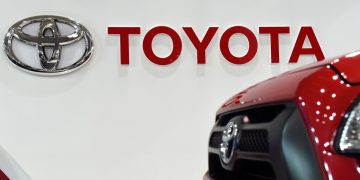
Namibia’s National Planning Commission, in partnership with the Ministry of Mines and Energy, NORED Electricity, and Germany’s KfW Development Bank, has secured a €7.5 million (approximately N$150 million) grant to expand electricity access for households and small businesses.
The grant complements the Ministry of Mines and Energy’s budget for Namibia’s electrification efforts. It is specifically designated for peri-urban on-grid and rural off-grid electrification, focusing on the North-East and North-West regions of Namibia.
According to recent statistics, the rural electrification rate is between 20% and 30%, while overall electrification stands at approximately 55% nationwide.
During the contract signing, National Planning Commission Director General Obeth Kandjoze noted that recent census data indicates Namibia’s population is 3.01 million, and the actual electrification rate may be lower than 55%, particularly in rural and remote areas.
He stated that “the access-to-energy project is a crucial initiative with significant impact, and additional projects of this nature will support the government’s efforts to increase energy access.”
Several of Namibia’s un-electrified areas are remote, with low population densities and dispersed settlements, making them difficult to reach with the grid.
To ensure the sustainability and economic viability of the new connections for NORED, the grant will cover the investment costs.
The combination of peri-urban on-grid and remote off-grid electrification will generate sufficient income to support regular maintenance by NORED, thereby maximizing developmental impact.
Ministry of Mines and Energy Executive Director Penda Ithindi stated that the Access-to-Energy Project will facilitate approximately 4,000 connections, benefitting between 18,000 and 20,000 people and productive users.
“Project preparation involved technical, environmental, economic, and developmental assessments, as well as extensive stakeholder engagement to identify the most suitable locations for this innovative approach,” he added.
NORED’s Acting CEO, Toivo Shovaleka, confirmed that “signing the contractual agreements today allows us to commence the project next week, starting with tender documentation”.
He explained that NORED will oversee the project implementation and engage service providers for the rollout. The funding proposal aims to support growth among off-grid solution providers.
German Ambassador Thorsten Hutter stated that the Access-to-Energy Project is designed to combat energy poverty by expanding and improving electrification in rural and peri-urban areas.
This will foster the productive use of electricity, expand income opportunities, and enhance economic development.
The success of the grant programme will be evaluated based on indicators including the installation of at least 2,910 new on-grid connections (minimum TIER 4), 990 new off-grid connections (minimum TIER 3), and 400kW of off-grid power capacity for mini-grids based on solar PV plus storage. The project is expected to be completed by the end of 2026.













